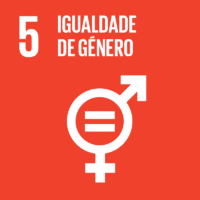Ciência_Iscte
Publicações
Descrição Detalhada da Publicação
Título Livro
The Palgrave handbook of youth mobility and educational migration
Ano (publicação definitiva)
2021
Língua
Inglês
País
Reino Unido
Mais Informação
Web of Science®
Esta publicação não está indexada na Web of Science®
Scopus
Google Scholar
Esta publicação não está indexada no Overton
Abstract/Resumo
In the last few decades, a number of European policies and programmes have promoted learning, training and work mobility of young people across countries, inside and outside of Europe. Nevertheless, lower socio-economic and educational background continues to affect the mobility of young people from peripheral countries. In some cases, their experience of migration and work represents cases of ‘trafficking.’ This chapter takes an in-depth biographical look at trafficking via the story of a young man from the northern region of Portugal. Challenging the nature and causes as well as remedies for ‘trafficked’ migrants, the chapter argues politically and socially constructed categories such as ‘human trafficking’ fail to adequately capture the mobility as practised by the young male in the study. The chapter aims to contribute to a growing body of literature that questions categories such as ‘voluntary’ migrant and ‘trafficked’ migrant, based on simplistic, static and binary understandings of mobility and work experiences, constructed by law and public discourse. This study also suggests that, if migration is the only ‘chance’ for many young people with fewer opportunities and disadvantaged backgrounds, the mobility capacities of these young people should be strengthened to reduce their vulnerability to exploitation..
Agradecimentos/Acknowledgements
--
Palavras-chave
Registos de financiamentos
| Referência de financiamento | Entidade Financiadora |
|---|---|
| UIDB/03126/2020 | Fundação para a Ciência e a Tecnologia |
Contribuições para os Objetivos do Desenvolvimento Sustentável das Nações Unidas
Com o objetivo de aumentar a investigação direcionada para o cumprimento dos Objetivos do Desenvolvimento Sustentável para 2030 das Nações Unidas, é disponibilizada no Ciência_Iscte a possibilidade de associação, quando aplicável, dos artigos científicos aos Objetivos do Desenvolvimento Sustentável. Estes são os Objetivos do Desenvolvimento Sustentável identificados pelo(s) autor(es) para esta publicação. Para uma informação detalhada dos Objetivos do Desenvolvimento Sustentável, clique aqui.

 English
English




